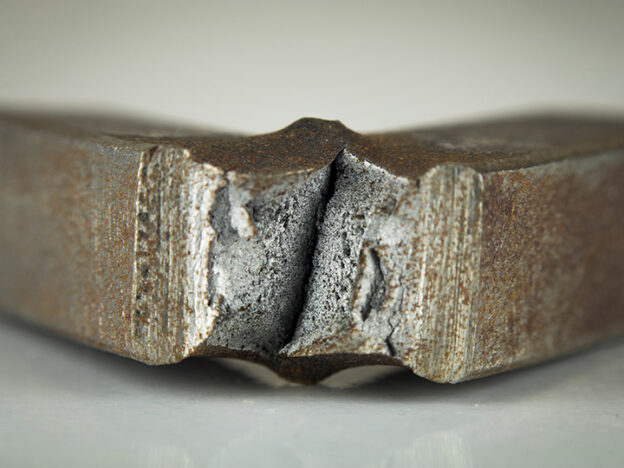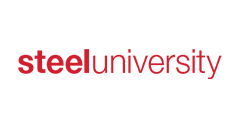Description
Date: 24 to 28 July 2023.
Estimated Time: 5 days, 8 hours per day.
Language: English.
Course delivery: Residential Sessions.
Held venue: Brussels.

Description
A practitioner-based course designed around real engineering problems.
The Structural Integrity Course offers a comprehensive programme to cover the main aspects of the assessment of engineering structures and components under the effect of mechanical loading, high temperature, and harsh environments. The course provides delegates with the knowledge and skills necessary to engage in structural integrity assessment cases involving failure mechanisms such as fatigue, fracture, corrosion, creep and synergistic effects. The course will review key theoretical aspects for the delegates to understand or refresh key concepts, and will then focus on practical issues of structural integrity assessment.
Check the pricing tiers here.
WHO SHOULD ATTEND
Engineers, researchers, technical managers in the aerospace, wind, hydrogen, automotive, chemical, electrical, oil and gas or the nuclear sectors.
Learning outcome
At the end of this course the participants will be able to:
• Understand the importance of measuring fracture toughness for the design and implementation of high-strength sheet steels with superior damage tolerance and crashworthiness
• Identify the different testing methodologies available to evaluate the plane stress fracture toughness of thin high strength metal sheets
• Know the industrial and economic benefits of implementing new testing protocols to assure the quality of high-performance steel products and prevent production losses
Course content
The topics presented during the duration of the course (see below), will provide delegates with tools to:
- Get sufficient theoretical background to gain confidence in the use of typical Fitness For Service assessment procedures and understand their limitations.
- Use engineering criteria and simple approaches to make predictions of life and threshold conditions and demonstrate the structural integrity of in-service components containing defects, and/or pits.
- Include different mechanisms ( e.g. fatigue and fracture at high/low temperatures, corrosion, and environment-assisted cracking, etc.) in the analysis to predict their contributions to cracking and corrosion damage as well as their influence on material performance.
Fracture Mechanics & Fatigue (Dr N.O. Larrosa)
– Introduction of the failure of structures and machines.
– Crack tip mechanics.
– Intro & application of Linear Elastic Fracture Mechanics.
– Fracture mechanisms in engineering materials.
– Plastic collapse as a failure mechanism.
– Elastic-Plastic Fracture Mechanics: When? What for? How?
– Structural assessment: Assessment based on the Failure Assessment Diagram (FAD)*.
– Comparison & Discussion of solutions of Fitness-for-service standard codes (API 579-1, R6, BS7910)
– Numerical Modelling: Stress/strain modelling and assessment of fracture parameters*.
– Case studies .
*ABAQUS finite element software (Dassault Systems) and Crackwise fracture mechanics software (see twisoftware.com/software/crackwise/) will be used for solving practical problems. There is no requirement for delegates to have any previous experience with these software packages. Assignments will be tailored to delegate’s previous experience. Attendees should download ABAQUS for free on their personal laptops from the SIMULIA Learning Community or DS Academy webpages (www.3ds.com/simulia-learning or http://academy.3ds.com). Crackwise licences will be provided to attendees a week before the start of the course.
Corrosion, Environmentally assisted cracking (EAC) (Prof. R. Akid)
– Principles and forms of corrosion damage.
– Calculation of corrosion rate and component lifetime.
– EAC: general background to Hydrogen Embrittlement, Stress Corrosion Cracking & Corrosion Fatigue.
– Pitting corrosion: Level 1 pipeline assessment. Impact of EAC on mechanical properties.
– HE mechanisms and models in metallic alloys: HELP, HEDE and AIDE.
– Corrosion-fatigue mechanisms and models.
– Interpretation of corrosion in standard codes. – Case studies: Pipeline failure, API 579 assessment; SCC.
High Temperature fracture and fatigue (Prof. R.A. Ainsworth)
– Creep deformation and rupture
– Creep crack initiation and growth
– Experimental & numerical C* methods
– Models of creep crack initiation and growth
– Creep-fatigue and creep-fatigue crack growth
– Treatment of residual stresses
– Effect of constraint on fracture behaviour
– Prediction of component lifetimes
– Case studies.
Speaker Introduction

Robert A. Ainsworth
Professor of Structural Integrity
The University of Manchester, UK

Robert Akid
Professor in Corrosion & Materials
The University of Manchester, UK

Nicolás O. Larrosa
Senior Lecturer in Structural Integrity
University of Bristol, UK
Price
To make this course accessible to as many people as possible, we are offering four different pricing tiers: Super Early Bird, Early Bird, Group Discount, and PhD Student Discount.
Super Early Bird pricing is available until 30 March and is the most affordable option for those who register early. Early Bird pricing is available until 30 April and is a slightly higher price point than Super Early Bird. Group Discount pricing is available for groups of three or more individuals who register together, and PhD Student Discount is available to those currently enrolled in a PhD programme.
Here is a breakdown of the pricing tiers for The Structural Integrity Course:
- Super Early Bird: €2499,30 (with accommodation) / €1749,30 (without accommodation). Available until 30 March.
- Early Bird: €2874,15 (with accommodation) / €2124,15 (without accommodation). Available until 30 April.
- Group Discount Super Early Bird: €2324,37 (with accommodation) / €1574,37 (without accommodation). Available for groups of three or more until 30 March.
- Group discount Early Bird: €2661,74 (with accommodation) / €1911,74 (without accommodation). Available for groups of three or more until 30 April.
- Group discount: €2999,10 (with accommodation) / €2249,10 (without accommodation). Available for groups of three or more until 30 March.
- PhD Student: €2374,35 (with accommodation) / €1624,35 (without accommodation. Must be enrolled in a PhD programme.
Official Certificate from steeluniversity
Receive a digital certificate signed by steeluniversity and worldsteel directors with the institution’s logo to verify your achievement.
Increase job prospects
worldsteel represents over 160 steel producers, national and regional steel industry associations, and steel research institutes. With a certificate from steeluniversity / worldsteel you can improve your CV to work for the steel industry.




